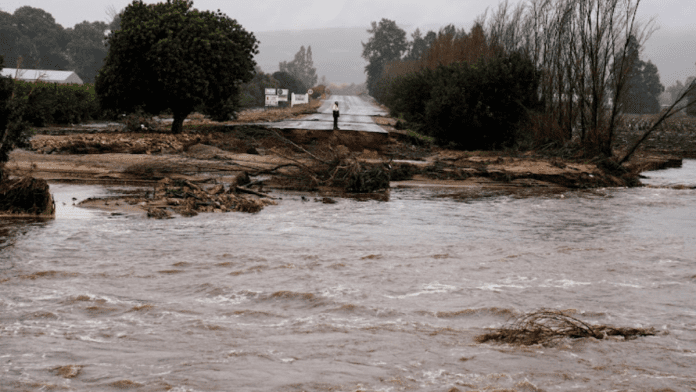News in brief:
– Severe flooding in Nigeria has submerged over 100,000 hectares of farmland, worsening the country’s food crisis and affecting more than 600,000 people across 29 states.
– The government is implementing measures, including the distribution of farming equipment and fertilisers, to mitigate the crisis and improve agricultural productivity, with hopes for a bumper harvest later in 2024.
Farmers across the world are facing significant challenges, but Nigeria’s situation is particularly dire. Recent flooding has submerged over 115,000 hectares of farmland, exacerbating an already critical food crisis. This devastating impact is felt across 29 states, with the National Emergency Operations Center (NEOC) reporting that Bauchi, Taraba, and Jigawa states are among the hardest hit.
The floods have directly affected agricultural productivity in Nigeria, leading to significant losses in crops and livestock. Specifically, Bauchi saw 50,343 hectares of farmland submerged, followed by Taraba with 22,182 hectares, and Jigawa with 9,919 hectares. Other states, such as Niger and Sokoto, also suffered considerable damage, each losing thousands of hectares of farmland.
Key facts and data
- Total Farmland Affected: 115,265 hectares.
- States with the Most Damage: Bauchi (50,343 ha), Taraba (22,182 ha), and Jigawa (9,919 ha).
- Population Impacted: 611,201 people across 154 local government areas.
- Displaced Individuals: 225,169.
- Food Inflation Rate: Over 40%, according to Nigeria’s National Bureau of Statistics (NBS).
Nigeria’s food crisis is multifaceted, involving both natural disasters like flooding and human-induced factors such as conflict and inflation. The ongoing clashes between herdsmen and farmers have disrupted agricultural activities, pushing farmers to abandon distant, fertile lands for fear of violence. This situation, combined with high inflation rates—currently around 16%—and fluctuating exchange rates, has driven up the cost of farming inputs like fertilisers and tractors.
The impact of inflation on food prices
Inflation has a ripple effect on agriculture, making it more expensive for farmers to operate and pushing food prices higher. As a result, Nigerian households are expected to allocate 54.9% of their income to food in the coming months. This shift in spending underscores the severity of the crisis, as families cut back on non-essential items to focus on necessities like food, education, and healthcare.
Despite these challenges, Nigeria’s Minister of Agriculture and Food Security, Abubakar Kyari, remains optimistic. He has assured the public that efforts are underway to mitigate the effects of the floods and improve food production. These efforts include the distribution of fertilisers and the acquisition of 2,000 tractors and 9,000 farming implements from Belarus, aimed at shifting from traditional farming methods to more mechanised practices.
Kyari also highlighted the government’s push towards a bumper harvest expected around October-November 2024, contingent on favorable weather conditions. This optimism reflects the government’s commitment to addressing the food crisis, but the situation remains precarious, with much depending on the effectiveness of these interventions.




[…] Nigeria’s agricultural sector, reducing crop yields and threatening food security. In 2022, severe floods damaged over 100,000 hectares of key crops like cassava, rice, and plantains, […]